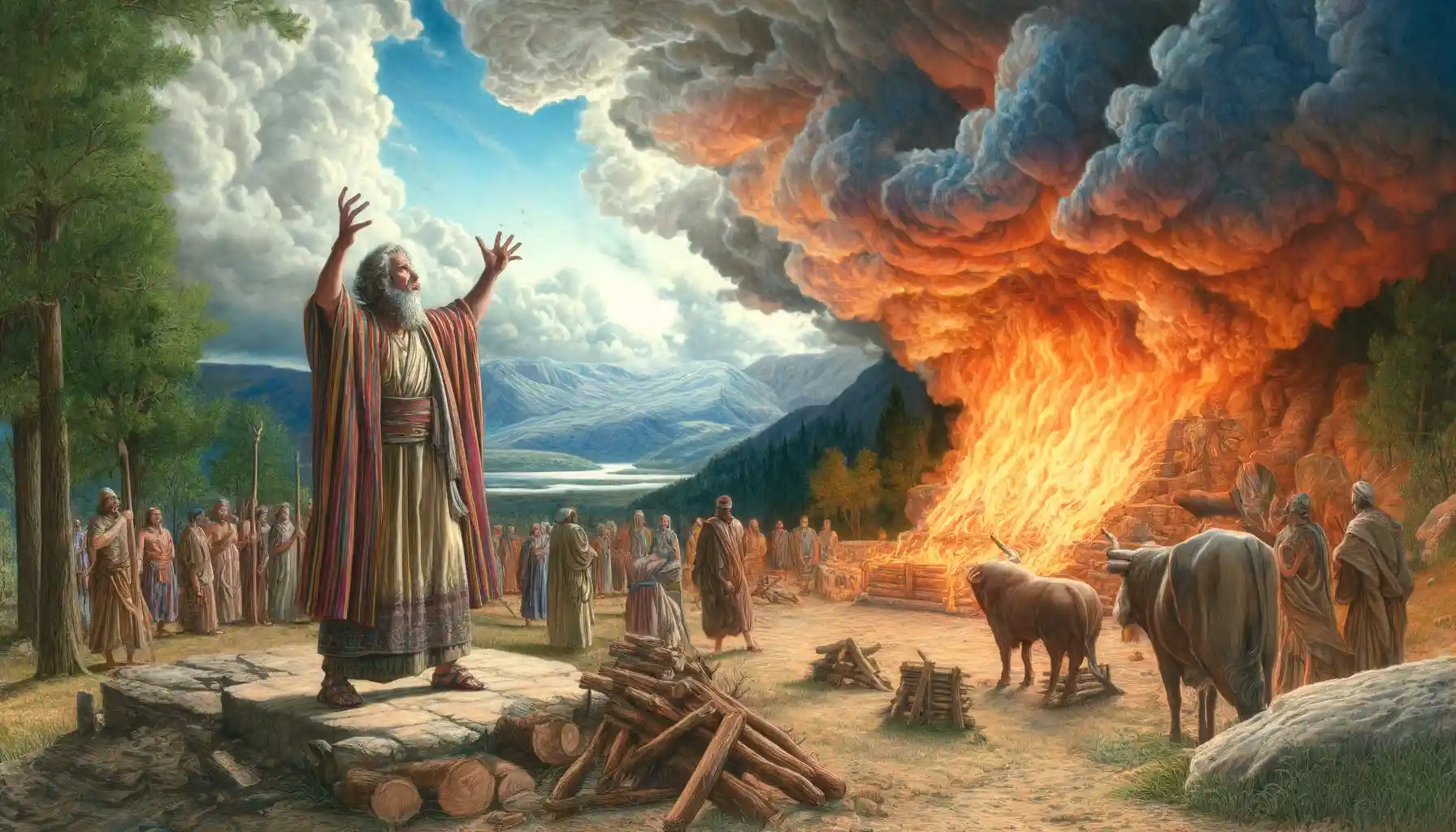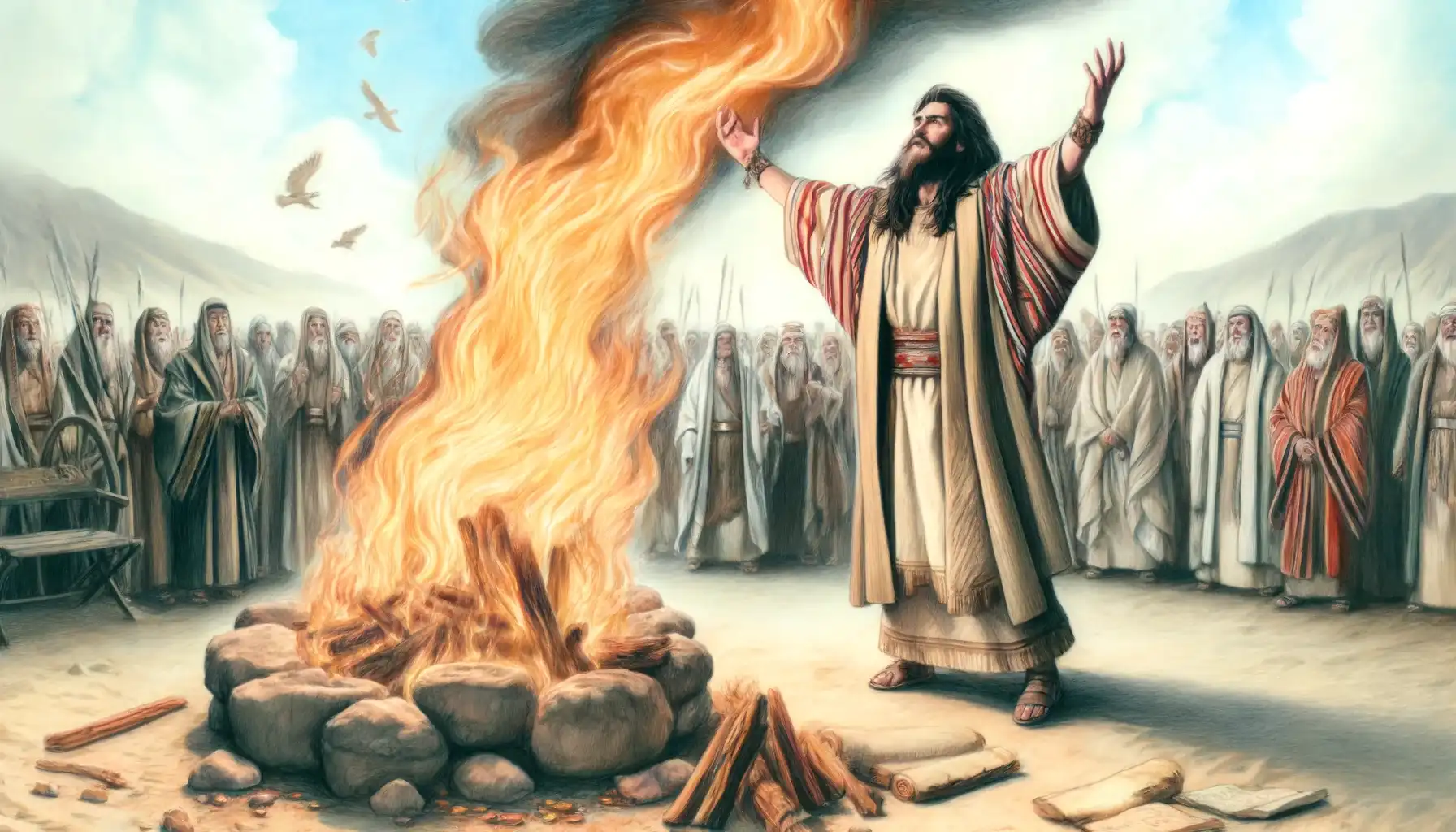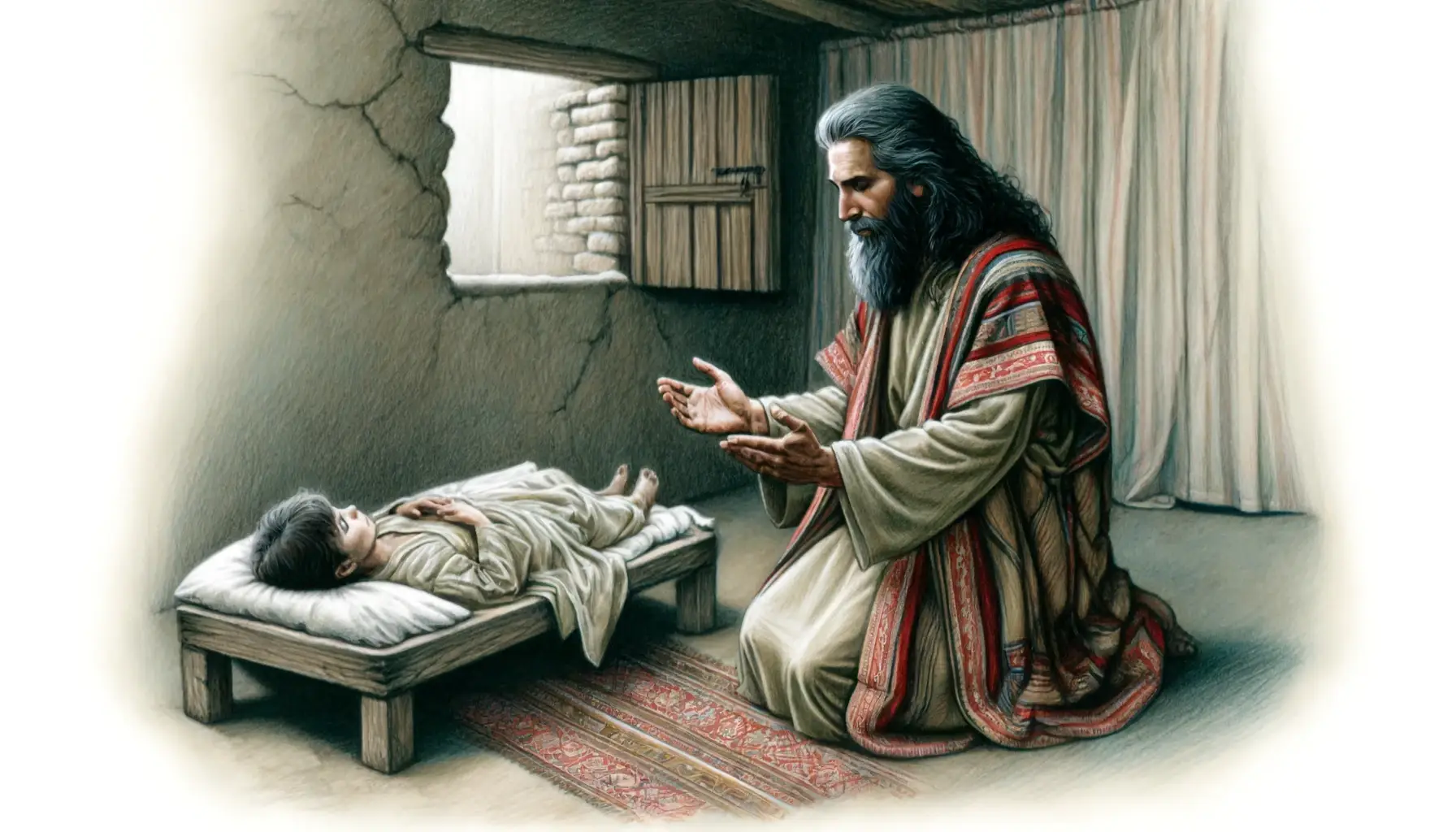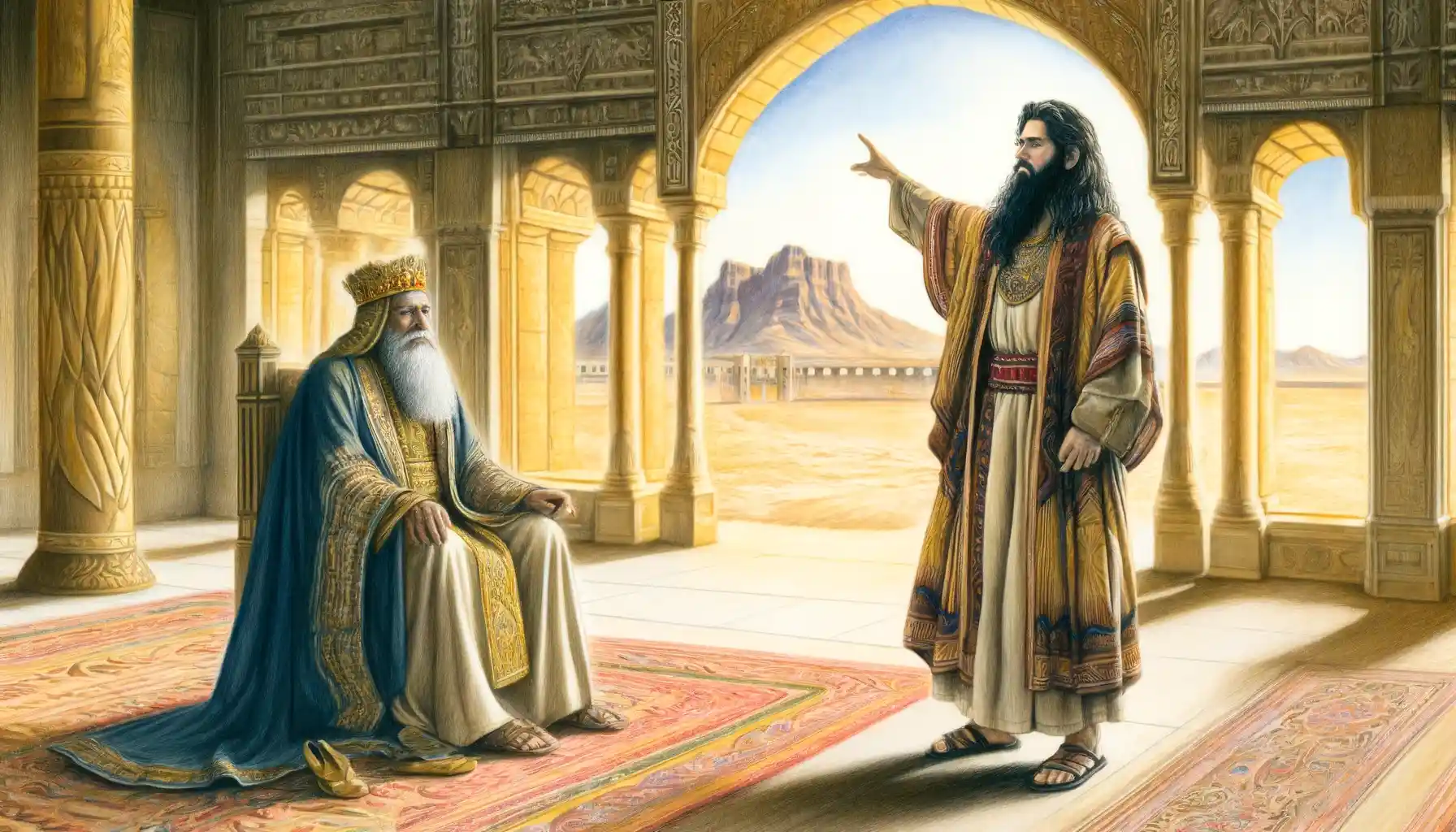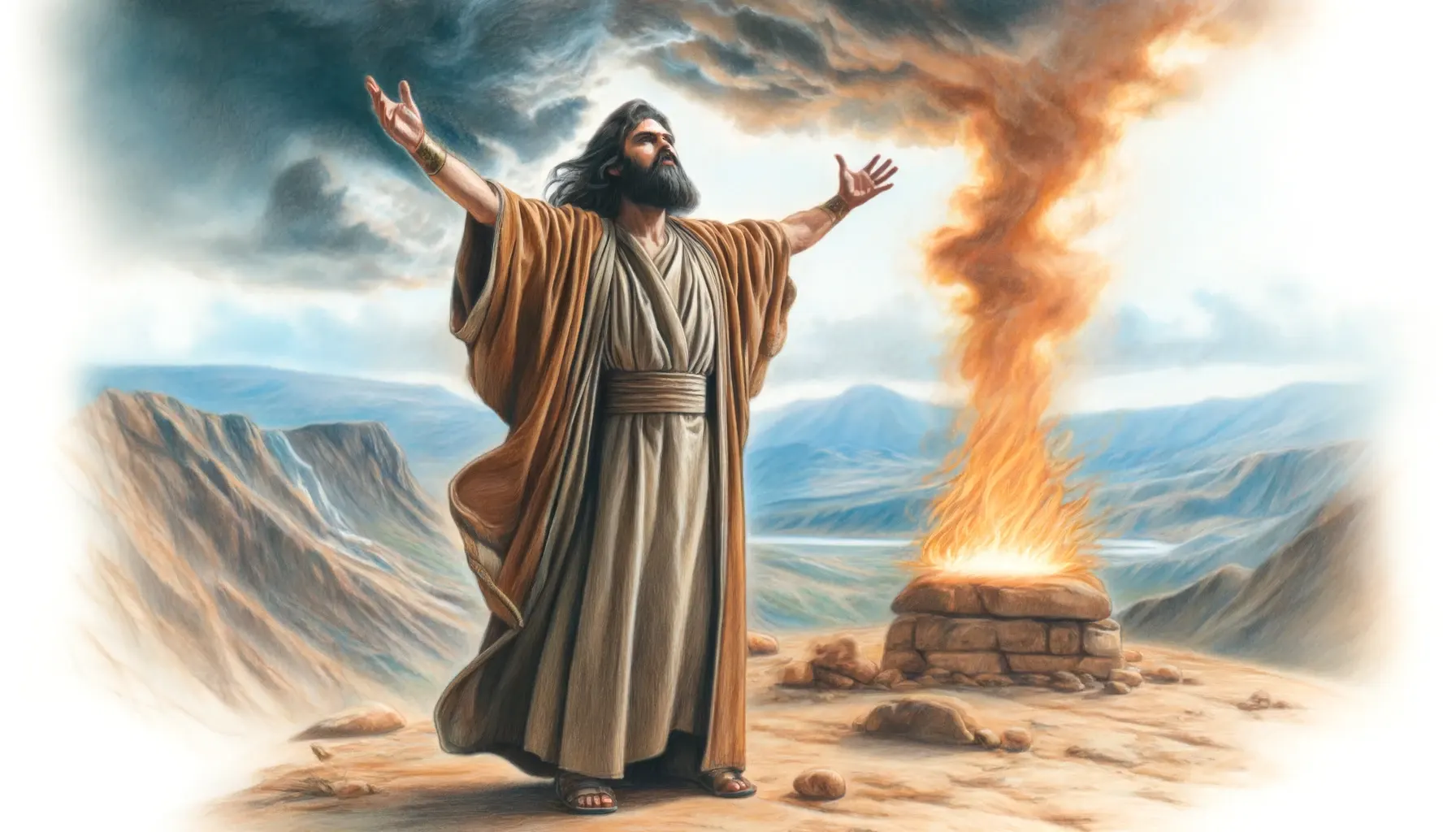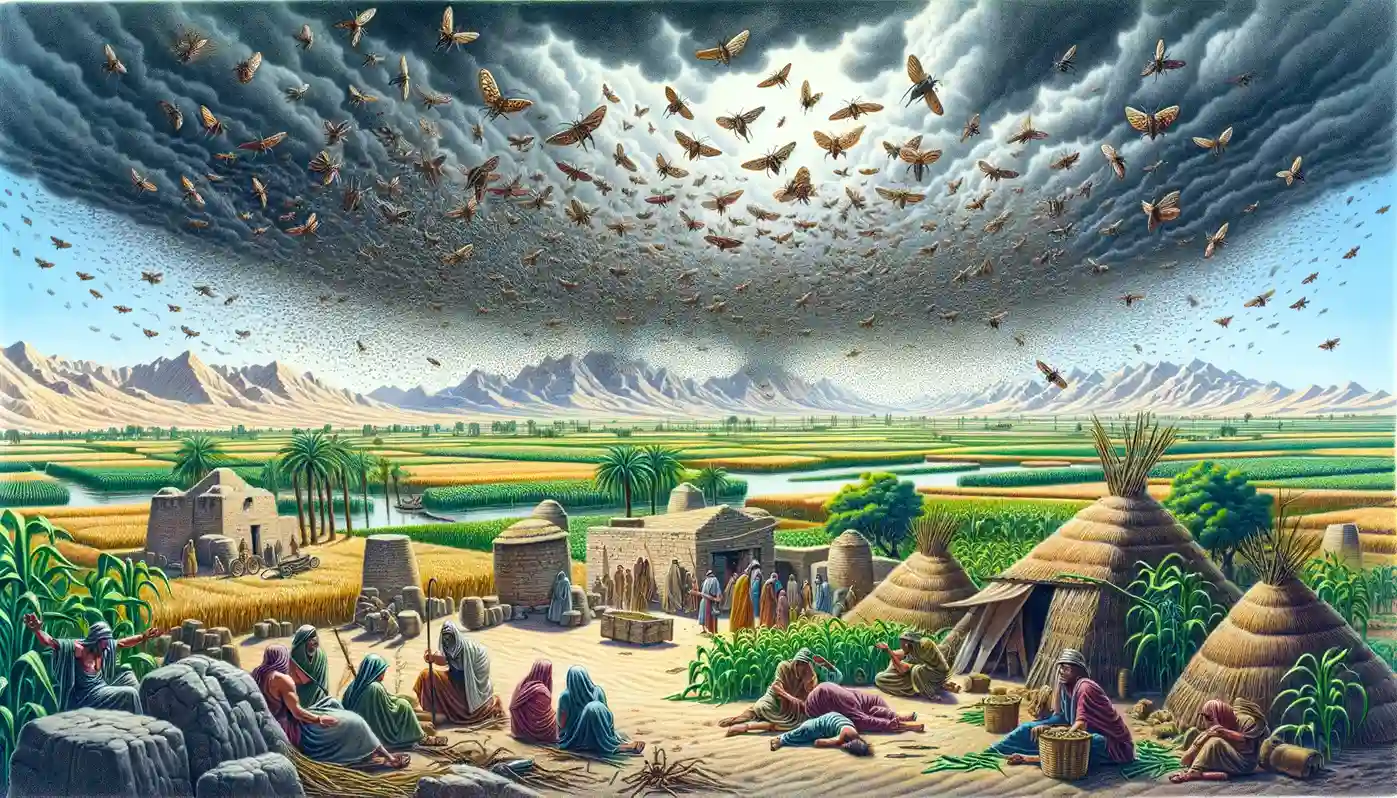Elijah’s prayer on Mount Carmel is a pivotal moment that not only demonstrates the power of faithful prayer but also signifies a turning point for the Israelites, reaffirming their commitment to Yahweh amid widespread apostasy.
In the dramatic episode on Mount Carmel, as detailed in 1 Kings 18:36-38, Elijah calls down fire from heaven to consume a water-drenched sacrificial offering, decisively demonstrating Yahweh’s supremacy over Baal and significantly impacting Israel’s religious landscape by reaffirming monotheistic worship and the authority of God’s prophetic messenger.
In the narrative of 1 Kings 17:17-24, Elijah raises the widow’s son from the dead in Zarephath, showcasing God’s supreme power over life and death, and reinforcing the prophet’s authority as a true messenger of Yahweh, thereby deepening the widow’s faith and illustrating the reach of God’s miraculous intervention beyond Israel.
Elijah’s announcement of a multi-year drought in 1 Kings 17:1 serves as a divine judgment against Israel’s idolatry, directly challenging the worship of Baal and asserting Yahweh’s supreme control over the weather and the fertility of the land.
Elijah, a defining prophet in the Hebrew Bible, is celebrated for his unwavering dedication to God, most notably demonstrated through his dramatic confrontation with the prophets of Baal on Mount Carmel, where he proved God’s supreme power by calling down fire from heaven.
The Ten Plagues of Egypt, as described in the Book of Exodus, systematically demonstrate the supremacy of Yahweh over Egyptian deities, culminating in the liberation of the Israelites from slavery.

